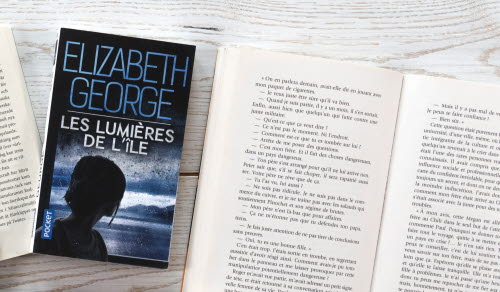“Paper books constitute an important gateway to the world of literature."
Arguments have raged ever since the invention of the e-book over which format is “better”, e-book or paper book, and this has provided fertile ground for numerous scientific studies. It’s tempting to think it comes down to a simple question of age – the adopters taking the futuristic digital path, the elders the more tried and tested. But years of surveys and scientific research suggest that the truth is less predictable than you may think.
From a practical perspective, the portability of an e-reader that can contain an entire library if you so wish, is impossible to beat. And digital books are low-cost to produce and thus cheaper to buy, or easier to get for free. However, their strength can also be a double-edged sword at times, because greater accessibility has often been shown to hinder our ability to digest all we’re reading. In The Reading Brain in the Digital Age: The Science of Paper versus Screens, writer Ferris Jabr lays claim to several arguments backing up the theory that reading on paper is much better in many scenarios. A primary conclusion is that if you’re in strong need of retaining information, you’re probably better off with an old-fashioned book. People seem to remember the information more and can understand it better.
Easier to remember
In an old, but interesting Europe-wide study (2015) looking at the impact of digitisation on the reading experience, 50 readers were given the same short story by author Elizabeth George. Half read it on a Kindle, the others in paperback form. Readers were then tested on several aspects of the story, including objects, characters and settings. The results suggested that we remember things easier if they’re written on the page of a book, rather than on a screen.

The findings broadly support the idea that reading on paper helps with things like memory and comprehension. When we read, our brains tend to build a kind of cognitive map, similar to if we were looking at an actual map and remembering that an object is in a certain location on the paper. It’s easier to recall a piece of information on a single static page rather than a scrolling stream of information, where “landmarks” are constantly moving.
MRI scans show that print material is more likely to activate the medial prefrontal cortex and cingulate cortex, both of which we use to process emotions.
Furthermore, MRI scans show that print material is more likely to activate the medial prefrontal cortex and cingulate cortex, both of which we use to process emotions. That emotional aspect is impossible to ignore, says Natalia Kucirkova, professor of Reading and Children’s Development. She has done extensive research on the subject, especially the effects of digital reading on young children.
”Paper books have a longer tradition of production than digital books, so their key advantage is higher quality of content than that of digital books, broadly speaking,” she says. “Paper books have been on the market for longer and parents and teachers are more familiar with them. So they tend to facilitate more positive adult-child interactions than those we observe with brand new digital books.”
Tangible and physical
”Age of course, plays a major role too, right from the earliest days,” says Kucirkova. “For children from 0-8 for example, paper books constitute an important gateway to the world of literature. The tangible and physical properties of the paper book allow children to treat it as part of their play, their familiar environment and as something they share with their parents at bedtime. The paper book thus represents an important symbolic object,” she says.
Reading increases regardless of format
There are then, many compelling reasons for it being better for us to read books, but we do live in the digital age and we can’t – nor would we wish to – “put the genie back in the bottle.” Ultimately, it probably depends on individual circumstances. Off on vacation? Don’t forget your e-reader. Lots to study? Bury your head in a book.

Perhaps most promising of all is a conclusion drawn by a study from New Zealand researchers Hooper and Herath. In Is Google making us stupid? The impact of the internet on reading behaviour, they learned that, regardless of format, thanks to the growth of online material there’s been a marked increase in reading overall.
Times change, but the love we have for books endures. Rather than replacing traditional ones, e-books are increasingly becoming complementary products. And this should ultimately benefit the publishing industry and the reader alike.
Article by: Geoff Mortimore
Images by: Gabriel Liljevall, Peter Knutson

